CHAUD TOO CHAUD
BURUNDI: Rape as a weapon of war of Joseph Bitamba
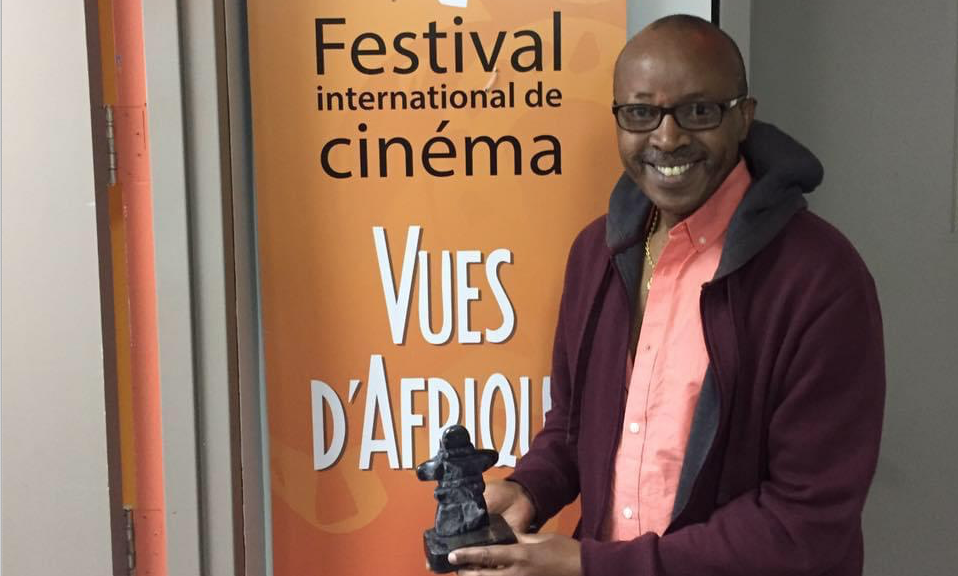
Rape as a weapon of war: absolute horror, “denial of life”. A sad reality told and lived in the film: «Les oubliées de la Région de Gands-Lacs», by Joseph Bitamba. According to the director, rape was used in Rwanda, Burundi and the Democratic Republic of Congo as a real weapon of war. Thousands of women and girls, when they were not killed afterwards, saw their lives shattered forever as a result of the acts they suffered. But they often carry a burden that continues to make them suffer every second because they are often afraid to testify, for fear of reprisals, mockery and stigmatization. And the pain remains all the more acute since their executioners not only enjoy total impunity, but sometimes seem to gain esteem on the part of the regime they serve, As is the case in Burundi where some rapists or sponsors of rapes are promoted to prestigious positions.Exclusive interview by Gérard Nzohabona for Ze-Africanews.
Ze-Africanews: Let’s start with the genesis of the film: how did you come up with the idea of making a documentary on rape victims?
Joseph Bitamba: The idea for the film started in a refugee camp in Tanzania, in Nduta. It was in 2016. I went there for an investigation.And in interviewing the refugees, men and women, there was a woman who told me spontaneously about the rape she had suffered, without even asking her the question. And it was the sarcasm with which her executioners violated her and the impunity they enjoy that prompted me to do something. She told me that some Imbonerakure, members of the youth league of the ruling party, the CNDD FDD, called militia by the UN, came to the family home.They first kidnapped her husband, who was never found. Then they came back and raped her saying, cynically, “Let’s have sex like your husband told us you do it so well.” And finally, she found herself pregnant, and was forced to flee with two children, one of whom had been raped. Her back was so broken that she couldn’t even get firewood. I met many other women and girls from the same camp, but they did not have the courage to speak out. I went back to Kigali, Rwanda, where I was on another set. It was there that I became interested in the many cases I had heard about in the Mahama camp in south-eastern Rwanda. I then started working with two groups of twelve women each. But there were so many that I couldn’t fit them all into the film: cases from 1988 and the war from 1993 to 2003, but I just focused on those from 2015 and beyond.
Ze-Africanews: Your film involves rape victims from Burundi, Rwanda and the Democratic Republic of Congo. Why the choice of these three countries?
Joseph Bitamba: Because these three countries do what is commonly called the African Great Lakes Region. The cases in the Congo are well known for having been brought to the public by Dr.Mukwege who enjoys a worldwide reputation. Dr. Denis Mukwege, known as the man who repairs women, is the 2018 Nobel Peace Prize winner. He is the founder of the Panzi Hospital in Bukavu, in the east of the DRC, where he looks after women victims of genital mutilation and rape. In Rwanda, there was fairly strong psychological support, even though we did not talk about it very much. I first analysed how other countries have helped these women so that I could better formulate what Burundian women need, because some aspects require specialists that I am not. Moreover, these rapes often have political or ethnic foundations. If we look closely, the phenomenon starts in Rwanda in 1994, ends up in the DRC in 1997-98, and then in Burundi. It is obvious that the movement follows a genocidal idea with the trajectory of the Interahamwe, the young Rwandans who constituted the militia author of the genocide of nearly one million Rwandan Tutsis from April to July 1994. So that’s why I wanted to put all these crimes together to be a real source of information on the subject for the future.
Ze-Africanews: At what point did you understand that rape had been used as a weapon of war?
Joseph Bitamba: In the DRC the question does not arise, since even the victims often speak of Interahamwe; in Rwanda, it is the same, but in Burundi less, since they are Imbonerakure, but it is an open secret, they are allied with the Interahamwe, who are their mentors. I talked a lot with one of the protagonists in the film, Patrick, a Rwandan psychologist who did an enormous amount of research that allowed him to clearly trace this trajectory.
Ze-Africanews: Did you do the interviews with the victims?
Joseph Bitamba : Yes
Ze-Africanews: Was it easy for you, a man, to be accepted by these women bruised by other men?
Joseph Bitamba: This is really the thing that was the most difficult in making this film. In relation to women first, because there are certain things they cannot tell me as a man. Secondly, in terms of myself, I must admit that I was not comfortable, and I must admit that this is not the kind of ordinary interview I used to conduct. At times, you feel guilty, you fall into a psychosis, you find yourself carrying the entire burden and you say to yourself, “Men, we are really savages!” For example, I could do an interview in the morning and, in the afternoon, the interviewee called me to tell me that she doesn’t want to talk about it anymore. But after a while, by talking with them at length, by reassuring them, with empathy, there was a trust that was established. That was the most important first step. I was assisted by psychologists telling me how to approach them. But it’s been complicated to the end, because even though they’re all victims of rape, the trauma is different depending on what they’ve gone through, and I can assure you that there are some who have gone through things that even the most fertile mind can’t imagine.
Ze-Africanews: What touched you the most in their testimonies?
Joseph Bitamba: Pretty much everything. I experienced it all as personal stories that haunted me for nights and nights. Imagine a woman who lives with a husband who will never know his wife’s ordeal, or a young girl who will one day found her home with such a secret on her heart. But beyond this unspeakable pain, it is this common desire to get out of it and to prevent such a thing from happening to the youngest and future generations, especially through true justice.
Ze-Africanews : After two months of the launch of the film, are you satisfied with the reception of the audience?
Joseph Bitamba: Yes, amply. You know, during the filming, you feel like you’re alone, but with the very encouraging testimony that comes to me, and I can tell you that there are many of them, that’s when my loneliness fades and I think to myself that I was right to make this movie, even if it was painful and painful. People called me personally or in groups and even sent money that I gave to the victims. Even the sales on my Vimeo will go directly to these women who need so much help, not only psychological, but also material to return to a normal life, or a more acceptable life. And they all need it. My hope is that, everywhere, anyone who sees the film, if they want to help these women, I will have won my bet.
Ze-Africanews: What was the goal you were aiming for when you made this film?
Joseph Bitamba: It was to alert people to the existence of these crimes in Burundi, because nobody talked about them. The media reported on the torture, murder, kidnapping and disappearance of men, not because women did not want to testify, but just as a kind of self-censorship on rape. Many people called me after seeing the film and shouted, “This is in Burundi, it’s not possible!” The main objective is to alert. There are many organizations, especially women, even though we are all concerned, but the involvement of women with these victims can be more effective because they can confide in other women more easily.
Ze-Africanews: So you think these women still have things to say?
Joseph Bitamba: There they were expressed in the context of a film. Now they need to testify in the context of healing and reconstruction. As I said, these women have many needs. They fled after the rape with virtually nothing for the most part. They require psychological support. There are some who have suffered enormous damage to the genitals that need to be ‘repaired’ at Dr. Mukwege or elsewhere. Here is a positive note in all of this: one of these women, who had been told by a first doctor that she would no longer have a child when she was only 20 years old, has just consulted a second doctor who told her that she no longer had a problem procreating. She was assisted in this process by the Movement of Women and Girls for Peace and Security in Burundi, and she is very happy. It is certainly like a drop in an ocean, but it is through small things like this that we must work on a daily basis for them.
Ze-Africanews: Which sequel do you plan for this film?
Joseph Bitamba: The film will make its life, as they say. It will travel. For example, I have already registered him at the Vues d’Afrique festival in Montreal, at FESPACO, in Belgium, in France, etc. Many Burundian communities around the world have contacted me to ask me to organize a conference on the film on Zoom. The film must be seen by as many people as possible and thus generate a lot of help for these women. That will be my ultimate pride.
Ze-Africanews: Thank you and wish your film every success. Any last words?
Joseph Bitamba: I thank you. Those who wish to rent or buy the film can go to the following link on my Vimeo page:
Joseph Bitamba is a Burundo-Canadian. He lives in Canada, in Ontario. He has been behind the camera for about 40 years. With an astounding list: twenty-two documentary films to his credit and dozens of international awards. He just released his latest film, “The Forgotten People of the Great Lakes Region”. A first that took place on December 09, 2020, in partnership with the Montreal Holocaust Museum.
A LA UNE
MALI – Musician Salif Keita appointed Councilor Head of the Junta

Malian music star Salif Keïta has been appointed advisor to the head of the junta, Colonel Assimi Goïta, says a decree issued Monday, August 14, 2023.
The artist is part of a list of five people named “special advisers” to the Malian head of state, says the decree dated August 11. The text does not specify the role of Salif Keïta.
The great name of afropop and World Music, Salif Keïta, 73, also stands out for his political commitment and, since the advent of the colonels following a putsch in 2020, for his support of the junta.
He was appointed one week after the announcement of his resignation from an assembly set up by the military as a legislative body.
“I will always remain the undisputed friend of the military of my country,” he said in his letter of resignation read in the gallery.
Mr. Keïta publicly expressed his support for the sovereignty discourse of the authorities. He openly called a few months ago for the departure of the UN peacekeeping mission (MINUSMA), since officially announced by the UN Security Council.
Since 2012, Mali has been plagued by jihadist expansion and a deep multidimensional crisis. Violence from the north has spread to central Burkina Faso and neighbouring Niger.

CHAUD TOO CHAUD
SENEGAL – Investigative journalist arrested!

Senegalese investigative journalist Pape Alé Niang was arrested on 6 November at his home and taken into police custody. He is the director of the news site Dakar Matin critique du pouvoir in Senegal. Pape Alé Niang is a journalist famous for his regular chronicles of the news that Senegalese listen to.
Collateral damage on collateral damage! The «Sweat Beauty» case has not finished creating surprises. For this umpteenth arrest, it is around investigative journalist Pape Alé Niang to pay the costs, he was arrested on Sunday, November 6 and detained at the central police station of Dakar. He is accused of having an investigation report from the gendarmerie on the file between the pastef leader Ousmane Sonko and masseuse Adji Sarr. According to one of his lawyers, Mr Ciré Clédor Ly, the police arrested him on the orders of the Public Prosecutor.
In addition, a videographer from the Buur News website on behalf of Fatou Dione was the victim of “police violence” on Saturday, 5 November during a banned demonstration in Dakar. She “fainted when the police came to evacuate her with unprecedented brutality”. This demonstration was the initiative of a collective formed especially of activists. They demanded the release of “political detainees” most of whom are close to the opposition.
About 20 arrests took place during the demonstration and the arrested persons are still detained according to the local press.
Senegal is ranked 73rd out of 180 countries in the 2022 World Press Freedom Index compiled by the NGO Reporters Without Borders.
A LA UNE
IVORY COAST – Alpha Blondy supports Nathalie Yamb: “Nathalie Yamb is for us a calming factor that helps us rebuild”
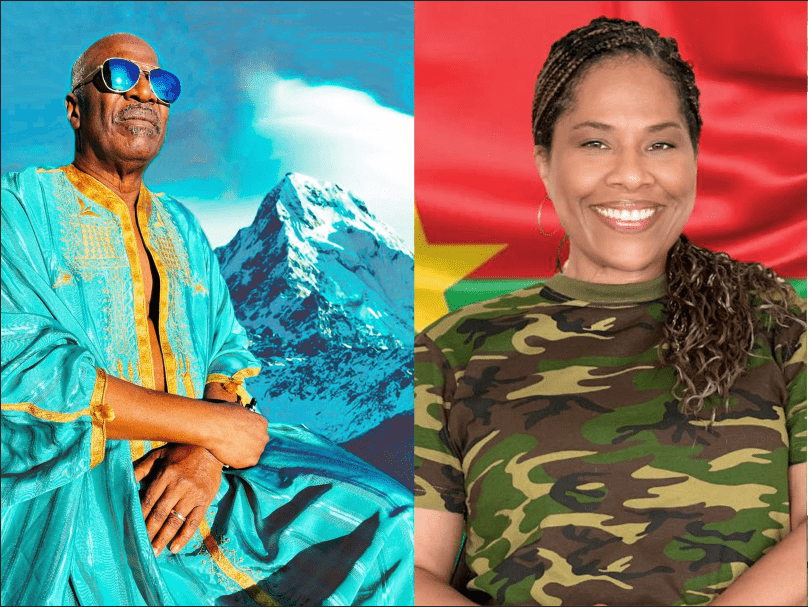
It is through a video of more than five minutes that the international reggae artist Alpha Blondy spoke on his facebook page this Saturday, November 4, 2022. He ruled on France’s decision to ban Nathalie Yam on its territory because of her hostile ideas towards the metropolis, according to the French authorities. The Ivorian singer did not go there with half words: “In France there are people who despise us, who speak ill of Africans, who insult us with their insolence, their arrogance… They have the right, but why not Nathalie Yamb. It’s not fair! It’s worse than FrançAfrique. Get your act together, let’s get our act together; let’s not push people to make decisions like the Algerians do: “the suitcase or the coffin”. For us, Nathalie Yamb is a sedative that helps us rebuild! Africa needs it! This economic slavery, this slavery, has only lasted too long, it must stop! Mr. Macron, please correct the tire, please! Thank you. I’m Alpha Blondy.”
The transcript of his full message can be read here:
I would like to speak today about the sanction taken by the French government against my sister Nathalie Yamb. I find that unfair and illegal for a country like France where there is freedom of expression. Nathalie Yamb has the right as an African to defend her continent and her people, a people that needs to be rebuilt. Nathalie Yamb is among those who are rebuilding the African mentality that has been deconstructed for more than 5 centuries, I am not talking about Arab-Muslim slavery, so we are going towards 1200 years.
When Charlie Hebdo was a victim of what we all saw, you took steps to defend freedom of expression, so why doesn’t Nathalie have the right to defend her people, to help her people regain confidence in themselves, to have a little dignity, To call the heads of state to raise their heads even if they are victims of false blackmail.
She is right that Mali has the right to choose its friends. It is not up to France to dictate to French-speaking African countries which ones they must attend or not. Your history with Russia is none of our business, we don’t have to follow your lead. Mali is an African country and Nathalie Yamb is an African who speaks to Africans. When she criticizes Alassane Ouattara, it is her right as an African to speak to her African brother. When she criticizes Mr. Macky Sall, she also has the right to criticize…. Nathalie Yamb has the right to say what she says and you don’t have the right to forbid her to go to France, don’t push too hard. We need her words, it heals us! It heals our wounds. We must not gag her. She did not say to attack the embassies of France, she told the Africans that to take dignity, to take a thickness, she has the right to say that.
In France there are people who despise us, who speak ill of Africans, who insult us with their insolence, their arrogance… They have the right, but why not Nathalie Yamb. It’s not fair! I would like to ask Mr. Macron, you said that FrançAfrique is over, but what is this story about bagging Nathalie Yamb? It’s worse than FrançAfrique. Get your act together, get our act together! Let us not push people to make decisions like Algerians do: “the suitcase or the coffin”. For us, Nathalie Yamb is a sedative that helps us rebuild! Africa needs it! This economic slavery, this slavery, has only lasted too long, it must stop! Mr. Macron, please correct the tire, please! Thank you. I’m Alpha Blondy.
-

 EAST AFRICA1 year .
EAST AFRICA1 year .TANZANIA – President meets with Chairman of the Board and CEO of the Merck Foundation
-

 CHAUD TOO CHAUD3 years .
CHAUD TOO CHAUD3 years .POLITICS – [INTERVIEW EXCLUSIVE] – MADAGASCAR – Fanirisoa Ernaivo, a politician and activist committed to the rule of law and respect for democracy
-

 BUSINESS8 months .
BUSINESS8 months .GUINEA – Authorities demand repatriation of mining revenues
-
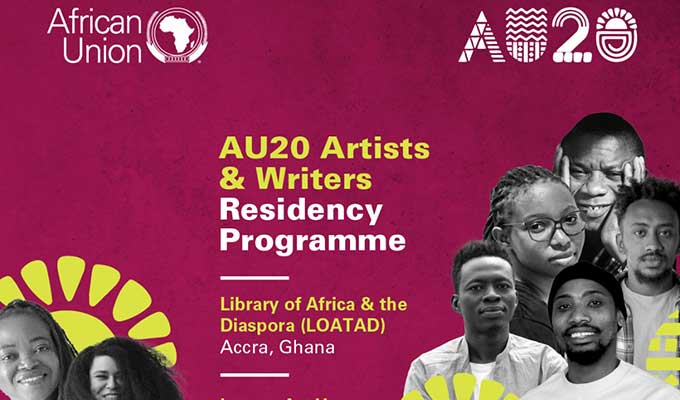
 CULTURE2 years .
CULTURE2 years .AFRICA – African writers and artists celebrate the 20th anniversary of the African Union
-

 POLITICS5 months .
POLITICS5 months .SENEGAL – Presidential election 2024: Registration of 79 candidates declared
-

 POLITICS3 years .
POLITICS3 years .SOUTH AFRICA – Former President Jacob Zuma in prison
-
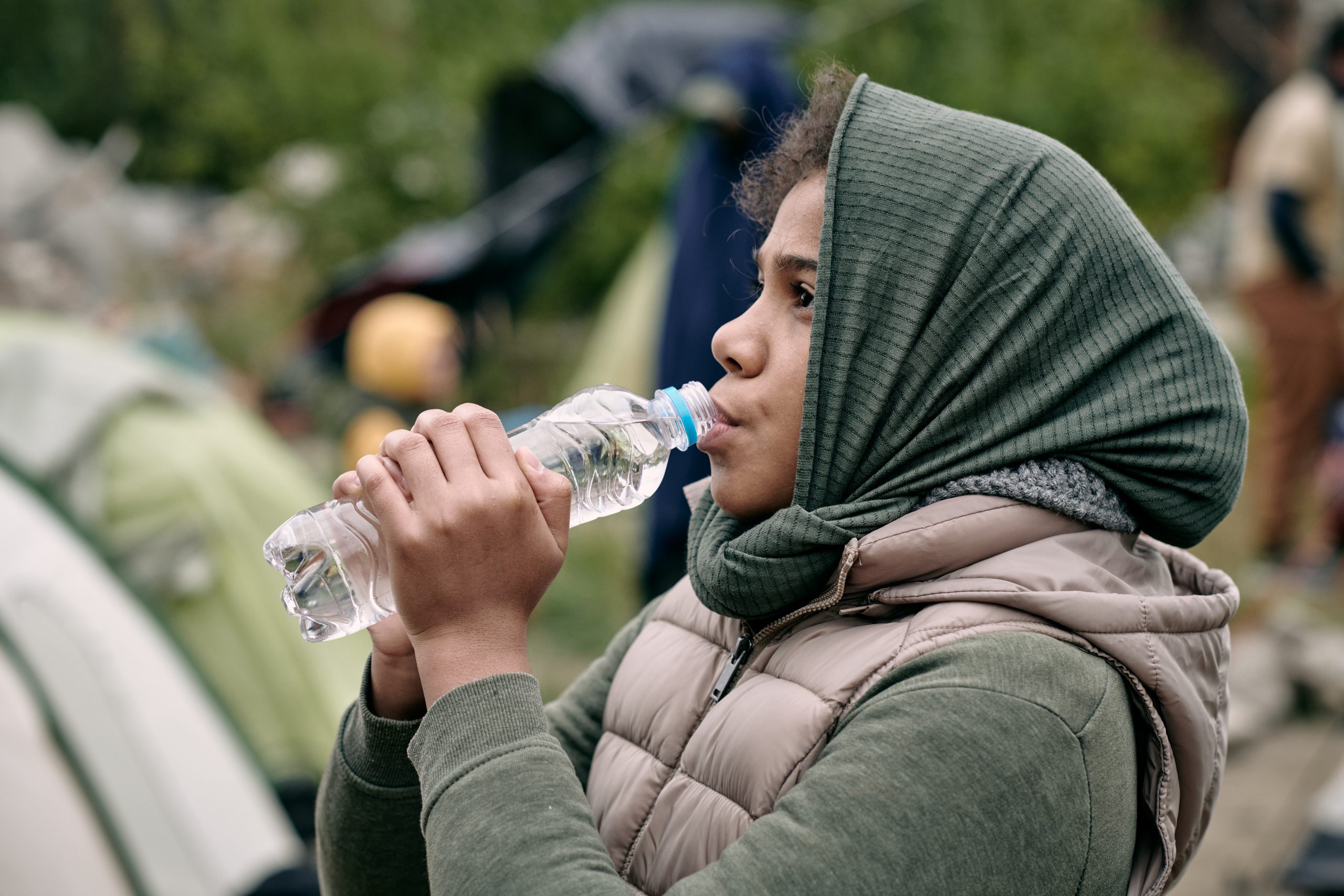
 IMMIGRATION10 months .
IMMIGRATION10 months .AFRICA – Migrant smuggling brings 59 billion CFA francs to smugglers per year
-
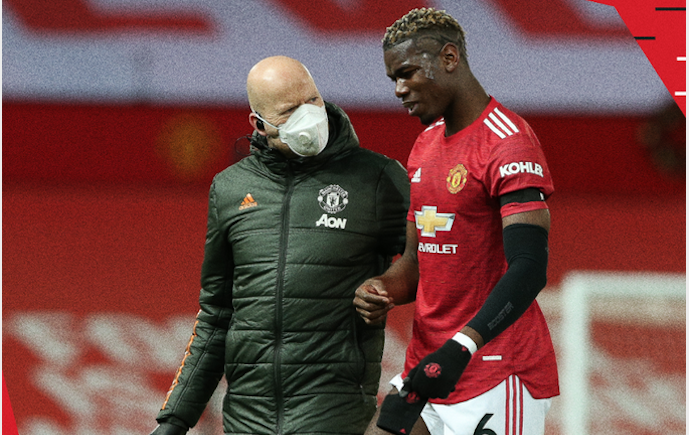
 A LA UNE3 years .
A LA UNE3 years .GUINÉE: Manchester United: Paul Pogba absent several weeks



